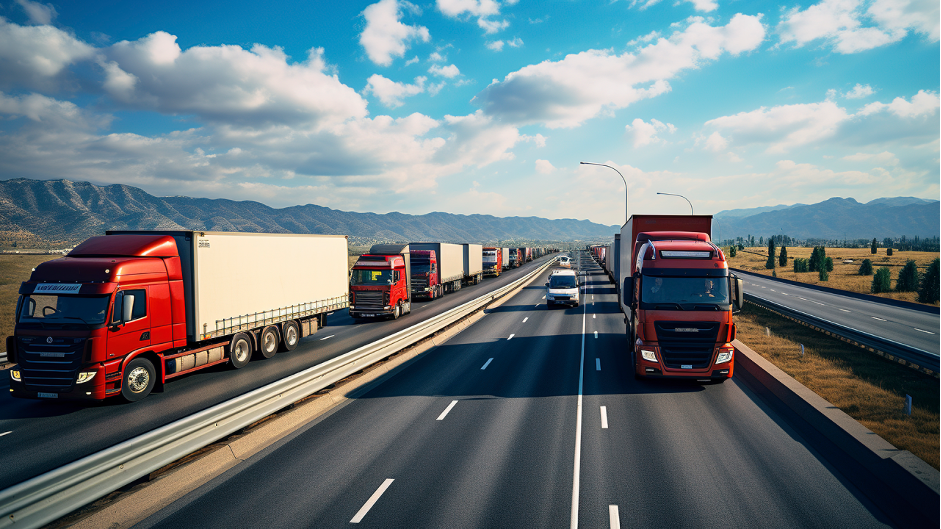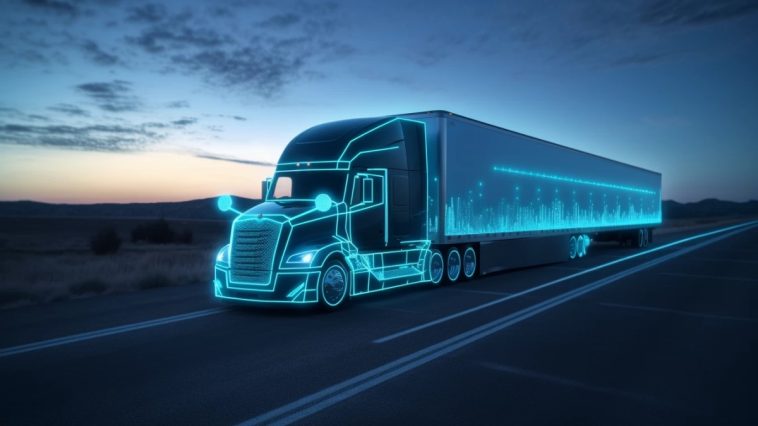Introduction of Technological Innovations in Freight Transport
The freight transport sector is considered part of world commerce, and it is deeply transforming at present, driven by a string of technology innovations. Technology is driving the norms and practices of the industry toward efficiency in logistics companies and pressure on environmental impact.
Description of Current Freight Logistics Technologies:
Today, freight logistics are well-supported by modern software and hardware solutions, from fleet management systems to automated warehousing. Such technologies ensure improved streamlining of operations, whereas bettered accuracy in supply chain management allows faster and more reliable delivery services.
You could make your business even more efficient by adding the Haulk app to your processes. This high-tech carrier software improves your workflow, route management, and delivery management by combining a full CRM with an easy-to-use mobile app. Utilizing the Haulk app, carriers can easily keep an eye on the progress of shipments, the completion of orders, and the work of their employees. The newest version of the app has full management tools for loads, deliveries, vehicles, and goods, making sure that all parts of your freight operations run smoothly and quickly. The Haulk app gives you the tools you need to achieve in the tough field of freight handling, whether you want to make your daily tasks better or grow your business. More information: https://haulk.app/carriers.

Innovation in Freight: It’s a Must
Despite impressive accomplishments, the freight sector is still racked with problems related to increasing fuel costs, growing environmental regulations, and not least, growing expectations of instantaneity in consumer services. These, in turn, press the need for continuous innovation to keep logistics operations agile and competitive.
Key Technologies Revolutionizing Freight Transport
Deliveries of Goods by Drones and Autonomous Vehicles
The autonomous vehicles and drones will literally redefine the movement of freight in no time. AVs, in this respect, reduce the cost of operation by huge margins and increase safety by minimizing errors due to humans. On the other hand, drones provide last-mile solutions, especially in the urban centers, where delivery van problems associated with traffic congestion and parking are common.
Greater Transparency and Security with Blockchain
In this view, blockchain technology portends to render freight logistics rather transparent and secure. As such, the immutable tracking of the goods from the source to the destination helps to create a trustless environment wherein parties can access real-time and verifiable data regarding the movement of goods without any possible risk of tampering.
AI and Machine Learning for Supply Chain Optimization
Further, artificial intelligence and machine learning are equally becoming important fine-tuning tools for logistics operations. The technologies are able to predict demand, route deliveries correctly, and maintain an efficient level of inventory management based on a huge volume of analyzed data to find patterns and insights scoping through, which human analysts would not be able to do in time.
The Role of Internet of Things and Big Data in Freight Management
Implement the real-time tracking IoT solution
The internet of things brings vehicles, cargo, and even roadways into the mix in granting the fleet real-time visibility and monitoring over the granularity of the fleet management. Internet of Things devices will be able to report health status of the vehicles, status of the cargos, and any anomaly of the routes for proactive maintenance and operational adjustments.
Predictive analytics and decision making using Big Data
The emergence of big data is reshaping how companies in logistics predict and allocate resources. Predictive analytic applications by companies are optimizing their operations with data-driven strategies, which cut waste and help in improving service delivery consistent with dynamic market demands.
Problems and Prospects of New Technology Adoption
Navigation of Regulatory and Safety Concerns
But the adoption of new freight transport technologies is not all milk and honey. In general, regulation always tends to be somewhat behind the technological advances, and this gray area can sometimes be very difficult for businesses to navigate. Safety issues, especially concerning autonomous vehicles and drones, are still pretty big hurdles.
Cost implications and returns on investment from technology expenditure
Technological investments demand deep capital deployment, with huge variability for return on investment. Companies must be ready to pay not only the initial costs but also those that will be incurred over the long term, saving resources and time. Proper strategic investment in technology can bring a great competitive advantage, streamline operations, and help cut costs in the long run.
FAQ AND ANSWERS
1. What are some of the ways that autonomous technology could improve safety in freight movements?
Cutting on human errors, which are the major sources of accidents in transport logistics, are autonomous technologies. Automation in driving and delivery of goods reduces the risk of accidents from fatigue or inattention.
2. What are some of the environmental benefits of AI in logistics?
AI for route optimization and load management can, for sure, lower fuel consumption and, by extension, emissions. Another way is through the application of analytics in smarter inventory management to enhance the efficiency of waste reduction and improved supply chain sustainability.
3. How does blockchain enhance supply chain transparency?
It uses a blockchain to develop a distributed ledger of documents in every supply chain step. Transparency helps in avoiding any fraud cases, determining the compliance status, and can even reduce the cost of transactions.
4. What are the challenges of integrating IoT with the current logistics setup?
Integration of IoT should cure the current, often technical, incompatibility issues and ensure the security of the data, while allowing an increase in the flow of data without currently overloading the systems in place.
5. Are these technological changes beneficial to small businesses?
Most of these technologies make it possible for small businesses through third-party logistics providers to drive efficiencies and lower costs while maintaining quality of service.
Efficiency, safety, and sustainability in the freight transport industry will be changed with these advanced technologies when combined. For such evolution at this rate, therefore, it is only a matter of time that this sector—hitherto conservatively embraced—will be setting the need for pace in the rapidly changing landscape.




